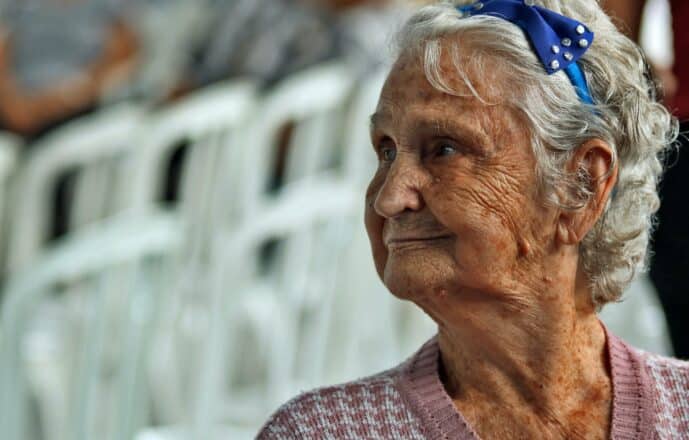In this enlightening piece titled “Understanding the Varied Costs of In-Home Elderly Care”, you will gain insights into the various alternatives available for in-home care for your aging loved ones. It’s essential to thoroughly assess your loved one’s needs, possibly through an independent evaluation by a professional in order to provide the most fitting care.
Options range from non-medical caregivers who offer assistance with daily activities to home health aides who can help with practical tasks such as feeding and grooming, up to skilled nursing services for those recovering from serious health issues. Employing caregivers can be done directly or through agencies, and both options come with their own benefits.
Costs of care can vary significantly, starting from approximately $13 per hour for a companion, surging up to $27 for a home health aide from an agency. It’s important to note, though, that Medicare and health insurance seldom cover these expenses. Thus, it is a crucial aspect to consider when planning elderly care.

Understanding Different In-Home Care Options
When it comes to ensuring dignified and quality care for your elderly relatives, in-home care can serve as a wonderful solution. There are various forms of in-home care options available for older adults, each tailored to meet different needs and conditions.
In-home Companions
In-home companions primarily offer social interaction and company for your elderly loved ones. They participate in various activities such as playing board games, walking in the park, or simply engaging in delightful conversations. Their role is pivotal in alleviating feelings of loneliness and boredom.
Home Health Aides
While in-home companions provide company, home health aides take on more intensive tasks. They assist with the activities of daily living such as dressing, bathing, and cooking. Often, they are also tasked with simple health care duties like checking vital signs and managing medication.
Skilled Nurses
For elderly relatives with more complex health conditions, skilled nurses may be required. These professionals are licensed and trained to perform medical tasks such as administering injections, providing wound care, and managing feeding tubes. They work under the guidance of a doctor, ensuring that your loved one receives expert medical attention at home.
Determining Care Needs to Fit the Elderly Relative
Understanding your elderly relative’s needs is crucial in determining the appropriate in-home care.
Listing necessary assistance tasks
The best approach is to list all tasks that your elderly relative requires assistance with. This might be anything from needing help with household tasks, struggling with personal care, or managing medications.
Involvement of family members in deciding care needs
Every family member’s input is valuable in this process. This ensures different perspectives are considered and thorough care can be provided, matching the elderly relative’s needs and comfort.
Importance of comprehensive care according to the elderly relative’s condition
Be sure to address not only physical needs but also mental and social needs. Comprehensive attention to these areas will go a long way in enhancing their quality of life.
The Role of Independent Evaluations in the Decision-making Process
Consulting with professionals provides crucial information for making the best decision about in-home care.
Getting an assessment from a social worker
Social workers are trained to conduct comprehensive evaluations and understand the complexities of aging. Their expert observations may bring light to factors you might have overlooked in your relative’s condition.
Value of geriatric care managers
Similarly, geriatric care managers play a vital role in the decision-making process. Their in-depth knowledge and experience in elder care help in crafting a suitable care plan for your loved one.
Spotting physical or cognitive decline missed by family members
It’s quite easy for family members to overlook subtle signs of decline in their elderly relatives. Professionals can spot these signs early on, helping to prevent more severe issues down the line.
Hiring Aides Directly vs Through Agencies
Both options have their own set of pros and cons, and understanding them can help you make a well-informed decision.
Understanding hiring process and responsibilities with agencies
Hiring through an agency typically simplifies the process. They handle everything from background checks to tax issues. And, if your aide is unavailable due to illness or a day off, agencies can usually provide a replacement.
Continuity of care with direct hires
On the other hand, directly hiring a caregiver can ensure continuity of care, which is beneficial for your elderly relative. This especially holds true when the needs of your relative are expanding over time.
Agency’s role in background checks and tax handling
One of the key benefits when hiring through agencies is that they handle the administrative tasks. This often includes performing background checks on all potential caregivers and managing taxes, providing you peace of mind.
Role and Expenses of Non-medical Caregivers
Non-medical caregivers are instrumental in providing comfort and companionship to your elderly loved ones.
The value of companionship provided
Their presence is essential in fostering emotional well-being. They often share meals, participate in recreational activities and contribute to a warm and welcoming home environment for the elderly.
Assistance with daily tasks
Non-medical caregivers are also very helpful in ensuring a smoothly run household. They can assist with tasks such as light cleaning, laundry, cooking, and grocery shopping.
Limits of their care provision
Keep in mind though, they are not equipped to offer hands-on care or manage medical conditions. Their role is limited to non-medical tasks and providing company.
Understanding Home Health Aides’ Roles and Costs
Home health aides take on a greater role in caring for your elderly relatives.
Activities of daily living they assist with
They support in maintaining a safe and comfortable lifestyle. This typically includes helping with activities such as personal hygiene, dressing, feeding, and mobility.
Ability to remind clients with medication
An important role of home health aides is to maintain medication schedules. They remind clients to take their medicine which is crucial in managing chronic conditions.
Detailing per hour cost and what it covers
The costs for home health aides vary but typically they average around $27 per hour. This cost covers their professional service including assistance with daily living activities and simple healthcare tasks.

When is Skilled Nursing Necessary and Its Relative Costs
Skilled nursing is a necessity when the health condition of your elderly relative is beyond the capabilities of non-medical caregivers and Home health aides.
Typical scenarios necessitating skilled nursing
Usually, skilled nursing is required following hospital discharge when the patient still needs medical attention.
The role of a doctor’s orders in initiating skilled nursing
Physician orders are necessary to commence skilled nursing. They will provide detailed instructions about the specific medical tasks to be done.
Defining specific care goals
Clear care goals should be defined to guide the skilled nursing intervention. This helps track progress and ensures efficient care.
Understanding the costs
The costs of skilled nursing can be quite high due to the specialized care they deliver. It’s important to understand these costs and factor them into your care budget.
Detailed Breakdown of Per Hour Cost in In-Home Care
Understanding the financial aspect of in-home care is vital in making an informed decision.
Average cost of a companion
The average cost of having an in-home companion is around $13 per hour. This covers companionship and help with household tasks.
Home health aide cost
As mentioned earlier, home health aides cost averages around $27 per hour. The cost covers assistance with daily living activities and simple medical tasks.
Cost of skilled nursing
Skilled nursing is more expensive due to the advanced medical care they provide. The cost varies depending on the complexity and volume of care required.
Limited Coverage from Medicare and Health Insurance
Paying for in-home care can be a challenge as insurance typically does not cover all costs.
What Medicare covers in-home care
Medicare coverage for in-home care is limited and primarily covers short-term skilled nursing or therapy services prescribed by a doctor.
Extent of health insurance coverage
Even private health insurance does not usually cover long-term in-home care services. You will most likely have to pay for these services out of pocket.
Out-of-pocket expenses in in-home care
It’s essential to plan for the expenses associated with in-home care. When insurance and Medicare fall short, you’ll have to bear the cost from your personal resources.
Strategies to Manage Costs of In-Home Care
While the cost of in-home care can be challenging, there are some strategies that can help manage it.
Exploring alternative care solutions
Look into alternative care solutions that are less expensive but still fulfill your loved ones’ needs. This could be adult daycare services or community programs for the elderly.
Negotiating costs with direct hires
If you decide to directly hire a caregiver, there is room to negotiate a salary or hourly rate that works for both of you.
Supplementing agency care with family-provided care
To help reduce costs, family members can provide care when they are available, reducing the hours you need to pay a professional caregiver.
The journey of deciding on in-home care for your elderly loved one may seem daunting, but with the right knowledge and preparation, you’ll be well-equipped to make the best decision. Remember, the goal is to provide a dignified and comfortable later life for your loved one, and there are various paths to achieving this.

